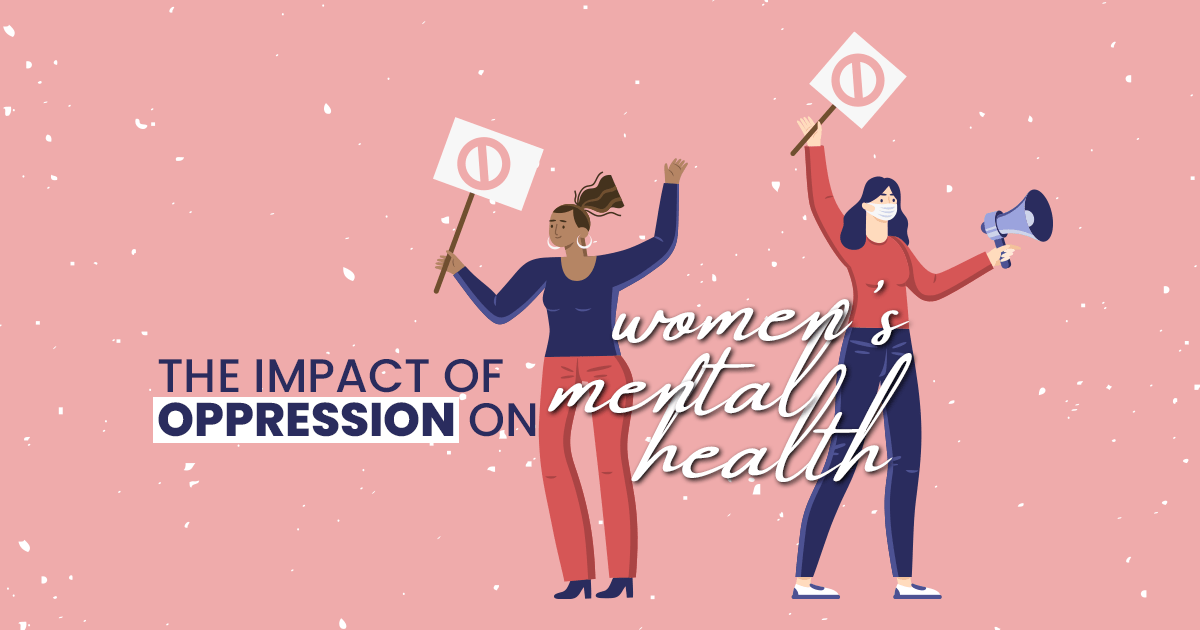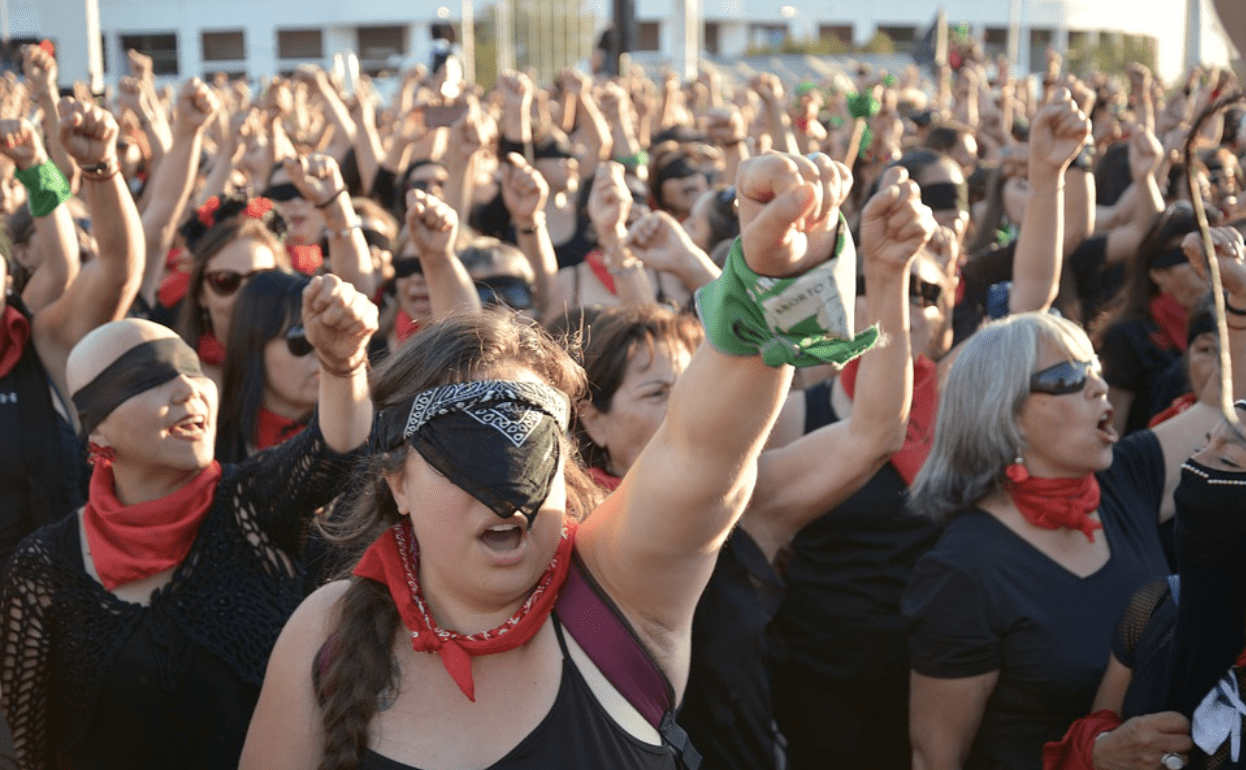
It’s been over 100 years since women in the United States of America won the right to vote, and physical abuse against women became illegal.
However, oppression against women is still felt strongly today. From household conversations to government decisions, the impact on mental health runs deep.
According to national statistics, more than a century later, a third of US women have been victims of physical abuse at the hand of their partners. Meanwhile, a growing number of women are falling victim to disorders such as anxiety, depression, and addiction.
A growing body of research suggests gender inequality and the systemized oppression of women contribute to disorders such as depression, anxiety, and post-traumatic stress syndrome. It begs the question – are we any closer to dismantling oppression against women and its devastating effects?
What Does Oppression Against Women Look Like Today?
Societal sexism is woven into the fabric of our daily lives. We hear it in subtle ways; the way supervisors might speak to women in meetings, how filmmakers portray heroines in movies, and the expectation of mothers versus fathers.
It also manifests in more obvious ways– pay discrepancies, psychological, sexual, and physical abuse.
Decades of research show women as the more oppressed, victimized, and marginalized gender in every corner of the world.
Sadly, mental disorder and addiction statistics increasingly reflect this.
According to the Anxiety and Depression Association of America (ADAA), women are:
- About twice as likely to experience a depressive episode
- Twice as likely to suffer from generalized anxiety disorder
- Up to 10 times more likely to have an eating disorder
- Twice as likely to suffer from a panic disorder
- More than twice as likely to develop PTSD.
The facts are stark and confronting. So, how does marginalization lead to these outcomes?
Five ways oppression against women impacts mental health
Societal expectations
The daily pressures placed on women have continued mounting for decades.
These pressures span workforce, household, and family structures, all upheld and reinforced by patriarchal systems and institutions. This can cause untold stress, which studies have linked to mental disorders such as anxiety and depression. High levels of stress over a prolonged period can contribute to poorer mental health outcomes and increase the risk of a severe mental illness.
Psychological and physical abuse
While anyone can fall victim to psychological and physical abuse, it is widely considered gendered. According to the World Health Organisation, about 30% of women suffer abuse in their lifetime. From manipulation to severe physical and sexual abuse, its psychological implications can be tragic and long-lasting. Self-medication can become an escape for women who don’t feel safe or empowered to seek support elsewhere.
Everyday discrimination
The Edinburgh Postnatal Depression Scale found that women who feel discriminated against because of their gender have higher depression scores. This supports the idea that perceived discrimination and systemized oppression against women have a powerful impact on mental health.
Barriers to mental health
Between the expense of treatment and its stigma, support isn’t always easy to access. In addition, past trauma means some may not be comfortable sharing their experiences around men at support groups.
Workplace discrimination
Gender pay inequality has plagued workplaces worldwide, with female-dominated professions more likely to pay less(teaching, nursing, etc.).
As more women juggle the demands of being the primary caregiver while navigating full-time jobs, the stress can be profound.

The Addiction Cycle
The numbers paint a clear picture – psychological distress and addiction often overlap. And it can be deadly. Each year, approximately 200,000 women lose their lives due to misusing substances, according to Psychology Today. Over 4.5 million women are recorded as having a substance abuse disorder. It’s another tragic symptom of oppression against women that goes overlooked. The stigma has led millions of women to suffer in silence.
Here’s how oppression against women leads to addiction:
The brain craves relief from stressful thought patterns
Women live in a world where they are generally less represented, safe, paid, and, ultimately, valued. From conversations to media – oppression against women is reinforced daily, impacting wellbeing. Self-medication and substance use – whether alcohol or other drugs – offer a dangerous, short-term escape from this reality.
A lack of trust in the system
When there is a lack of treatment available, women sometimes opt for self-medication. For example, if someone visits the doctor with declining mental health and her concerns are dismissed, she may not return if her circumstances worsen. A sense of helplessness and a lack of support can begin a pattern of self-medication that can evolve into addiction.
Accessibility to treatment
In 2010, a study found that women are far more likely than men to face multiple barriers when seeking treatment. From doctor’s appointments and prescription medication to therapy – it’s something not everyone can afford. Too often, self-medication poses a short-term escape for women struggling with mental health.
Shame and stigma
A deep-rooted sense of shame can compel women to be secretive about their substance use and become less likely to seek help. A study found that women feel a more significant stigma about substance abuse, impacting their recovery. While it differs for each person, patriarchal attitudes towards women and their household roles can exacerbate this shame and stigma. For example, a mother may not seek support if she fears being called a bad or careless mother.
Harming to Healing – What’s the Answer?
There’s no doubt that support and treatment are vital to those struggling with poor mental health and addiction. With more options now available to meet the growing demand, treatment is becoming more accessible. As the shame surrounding addiction reduces, more people feel comfortable reaching out for support, even if it’s through a friend or family member.
Our facility provides state-of-the-art care to women struggling with addiction. Our experts use a detailed treatment plan that targets the needs of each individual. If you are a woman that has been abusing drugs or medication, you do not need to suffer any longer.
Call our Anchored Tides Recovery at 866-600-7709 today to schedule a consultation and start improving the quality of your life.































